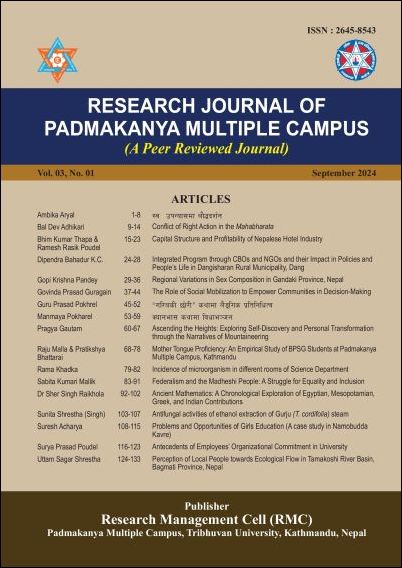Ancient Mathematics: A Chronological Exploration of Egyptian, Mesopotamian, Greek, and Indian Contributions
DOI:
https://doi.org/10.3126/rjpkmc.v3i1.71908Keywords:
Ancient Mathematics, Egypt, Mesopotamia, Greece, Arithmetic, Geometry, Algebra, Trigonometry, Historical ContributionsAbstract
The history of Mathematics has often been narrated through a Eurocentric lens, overshadowing the profound contributions of Indian mathematicians. This article seeks to address this oversight by exploring the evolution of Indian Mathematics acrossa different historical periods, from the Vedic era to the Classical period. It delves into the mathematical advancements of ancient India, where concepts like zero, the decimal system, and geometric principles emerged alongside religious texts. The article highlights significant contributions during the Pre-Middle and Classical periods, focusing on luminaries such as Aryabhata, Bhaskara I, Varahamihira, Brahmagupta, and Bhaskarácharya II. Their work in arithmetic, algebra, trigonometry, and geometry laid the foundation for modern mathematical thought. By presenting key formulas and theories developed by these scholars, the article underscores the global impact of Indian Mathematics and its enduring legacy in the field.




